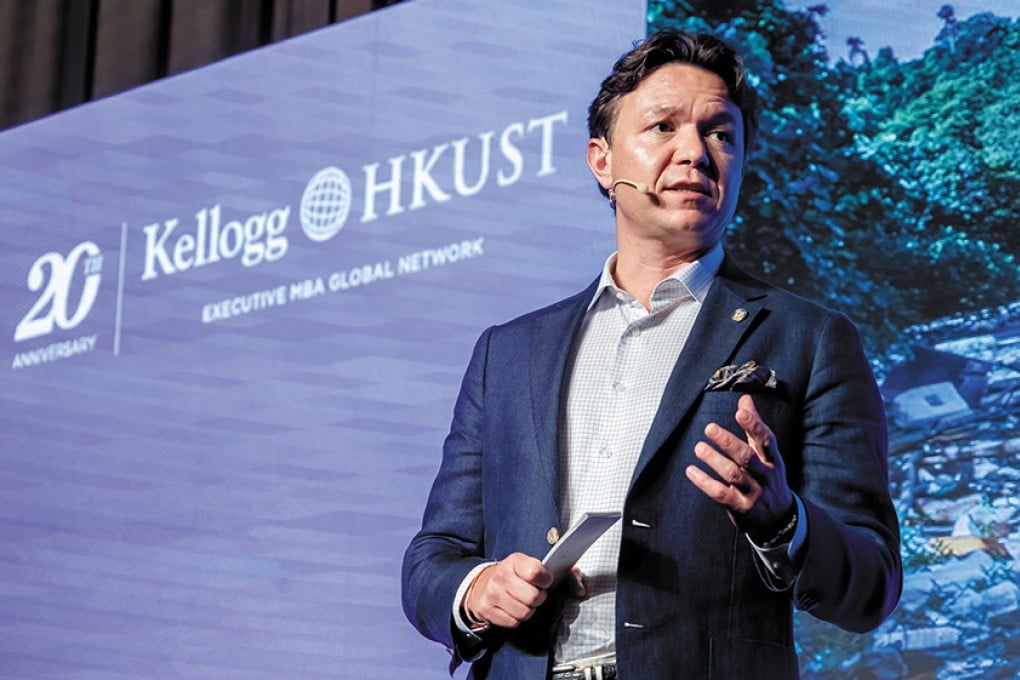Motivated by Purpose, Supported by Fellow Alumni
Mr Hakan Bulgurlu is the CEO of Istanbul-based consumer goods manufacturer Arçelik and one of the Distinguished Alumni of the Kellogg-HKUST EMBA Program, but it took him two attempts to get a place on the course. Now he translates his knowledge and a personal conviction regarding a specific global problem, into a purpose for his business.

[Sponsored Article]
When he was in his 20s, Hakan left his native Turkey to open a regional office for Arçelik in Hong Kong, and he made his first application to the Program when he was 28. However, given the Program's minimum 10-years-work-experience criteria, he had to wait for another three years, before he was accepted onto KH07.
“But I think they liked the fact I was persistent,” Hakan jokes.
Once his studies began, Hakan found what he believes is the most diverse program, at this level, anywhere.
“We had people flying in from the US and all over the world, and what separates this Program from all the others is the level of engagement of the people participating,” he says.
Hakan praises the extremely high quality of the faculty, counting them among the most knowledgeable teachers he has met.
“But I have to argue that, over the years, I’ve learned more from the people I actually did the course with,” he says. “Today, I count so many people from my class as my best friends. We are constantly calling on each other, helping each other out when there are issues.”
Local or industry-specific knowledge can be invaluable, Hakan says. “Whenever I go anywhere, I always make sure I see my friends from this Program because they give such insight,” he explains.
Arçelik is starting a business in the Philippines, and advice from a locally-based alumnus has saved the company at least a year of set-up costs, Hakan says.
“He gave us direct insight with no coloring, as he doesn’t have an agenda,” he says. “That kind of trust and relationship is really hard to build.”
While he enjoyed the electives he travelled to, Hakan notes that the most important learning was on the HKUST campus.
“This course is much more about practical applications in your daily working life, as opposed to academic, ‘ivory tower’ teachings," he says. “This is much closer to real life.”
He also faced the need to harness practicality to ideals in his address to the Management Conference, explaining the importance to him of translating a personal conviction regarding a specific global problem, into a purpose for his business.
“There are more than eight million tons of plastics thrown into the oceans every year,” he says. “More than one million plastic bottles are consumed every minute, and 90 per cent of those are never recycled. Make no mistake, we’re facing a global catastrophe – by 2050 there will be more plastic in the oceans, than fish.”
Environmental degradation can be seen everywhere, in the form of climate change, air pollution, water pollution, Hakan says. “The question for all of us, is: what are we going to do about it?”
So Hakan’s company is taking on the challenging task of recycling old refrigerators, handling the CFC gases and plastics they contain. An expensive new facility has recycled over 600,000 units to date, even though the firm’s marketing and sales teams initially believed no consumer would want to buy an appliance made from ‘second-hand’ material.
“But today we make a vacuum cleaner that is made 100 per cent from recycled materials, it sells at almost double the price of a normal vacuum cleaner, and it’s our best-selling product,” Hakan says.
The commitment doesn’t stop there, he adds. Hakan says his company has been looking at all its processes. “Each time you use your washing machine, about 700,00 micro-fibres are released into the ocean,” he explains. “Those micro-fibres are invisible to the human eye and they’re also invisible to fish.”
Arçelik has been developing a filter to remove micro-fibre from washing-machine water. The production costs are falling rapidly and the plan is to turn micro-fibres recovered from the used filters into yarn that could be sold to fashion manufacturers.
“Once the organization you manage becomes aware of a purpose, everything changes,” Hakan says. “Everybody gets motivated. Purpose-driven businesses will always win in the long term.”